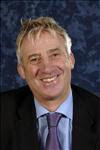
BETWEEN late 1938 and September, 1939, some 10,000 Jewish refugee children were allowed out of Nazi Germany to settle in Britain. Travelling in sealed trains, they were scattered across the country and most would never see their parents again.
What became of these children, who were involved in what became known as Kindertransport? And how did the experience affect their lives?
That is the theme of Liverpool-born writer Diane Samuels's hit play Kindertransport, first staged in London in 1993.
Curiously, it has never been staged in her home city, a situation corrected next week with a revival of it by the Shared Experience company, at the Liverpool Playhouse.
Diane has since written many more dramas, produced by a number of different theatre companies, but Kindertransport remains dear to her heart.
It was written at a time when she had just completed a radio play, was writing a children's drama for the Unicorn Theatre, where she was working as an education officer, and when she was really just starting out as a playwright.
It was not commissioned. "I had seen a television documentary in 1989 as it was the 50th anniversary of Kindertransport. I had a friend's father who had been on it and the subject struck me as interesting.
"I mulled over it a little bit and then started writing because I wanted to write it."
She gave it to playwright Mark Ravenhill and asked him what he thought. He did some workshops on it at the Soho Theatre, and then passed it on to the artistic director.
"Well, I didn't hear anything and I was going to ring when I had a call from Jack Bradley, the literary manager, to say the play had been short-listed for a Verity Bargate Award." As Diane had not entered it, she was surprised. It turned out that the artistic director had entered it without asking her. The play won the prize that year - 1992 - and the following year it was presented at the Soho.
"There were people queuing round the block to see it, it went to the West End (with Diana Quick starring) and a year later it was presented off-Broadway. The rest is history."
It has since been produced by other companies and is a favourite with amateurs. But the new production, directed by Polly Teale and with Diane Samuels very much involved, is described as a major revival.
It is the story of Eva, who is evacuated from Nazi Germany by train and raised by an Englishwoman in Britain. Many years later, now named Evelyn, her secret past is discovered.
For the play, Diane did essential research, interviewing many of the Kindertransport children. "They were all profoundly affected. Those who say people should just get on with life are not dealing with something and it's a way of being in denial."
At the core of the story is the mother/daughter relationship. Eva was an only daughter and, as Evelyn, also has a single daughter - the daughter discovers the secret.
"People who have seen the play often come up to me and tell me that their mother or father was on Kindertransport, but never talked about it, and they learned more from my play than they did from their parents.
"Others have said it was the first time their mother has talked about the experience after seeing the play."
She is delighted with the Shared Experience production. "The company works in a distinctive style which really suits this play," she says. "It is as if the play has come home, as if it was written for this company. "The play is not meant to be done straight, whatever that means. It works deep in emotional territory, unlayering the emotional psyche of the human being."
Meanwhile, she is completing the first draft of her new play, Three Sisters on Hope Street, her reworking of Chekhov's Three Sisters, but set among the Jewish community of post-war Liverpool.
Due to be staged by the Playhouse as part of the Liverpool Capital of Culture celebrations, it is the first commission from her home city. KINDERTRANSPORT opens at the Liverpool Playhouse on Tuesday, and runs until March 17 |















































No comments:
Post a Comment